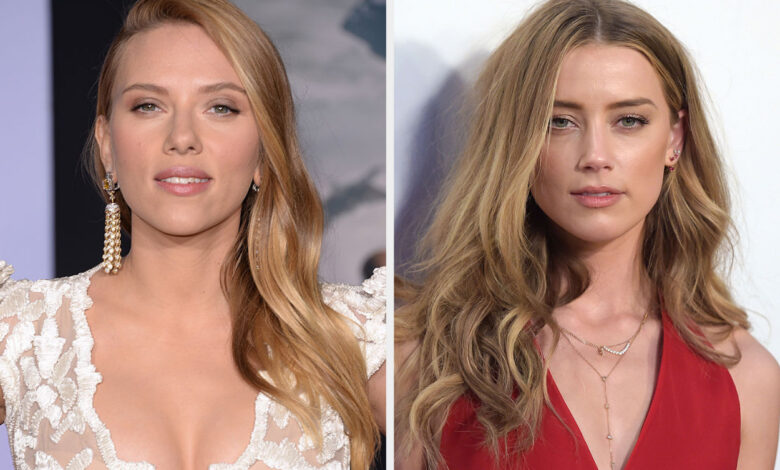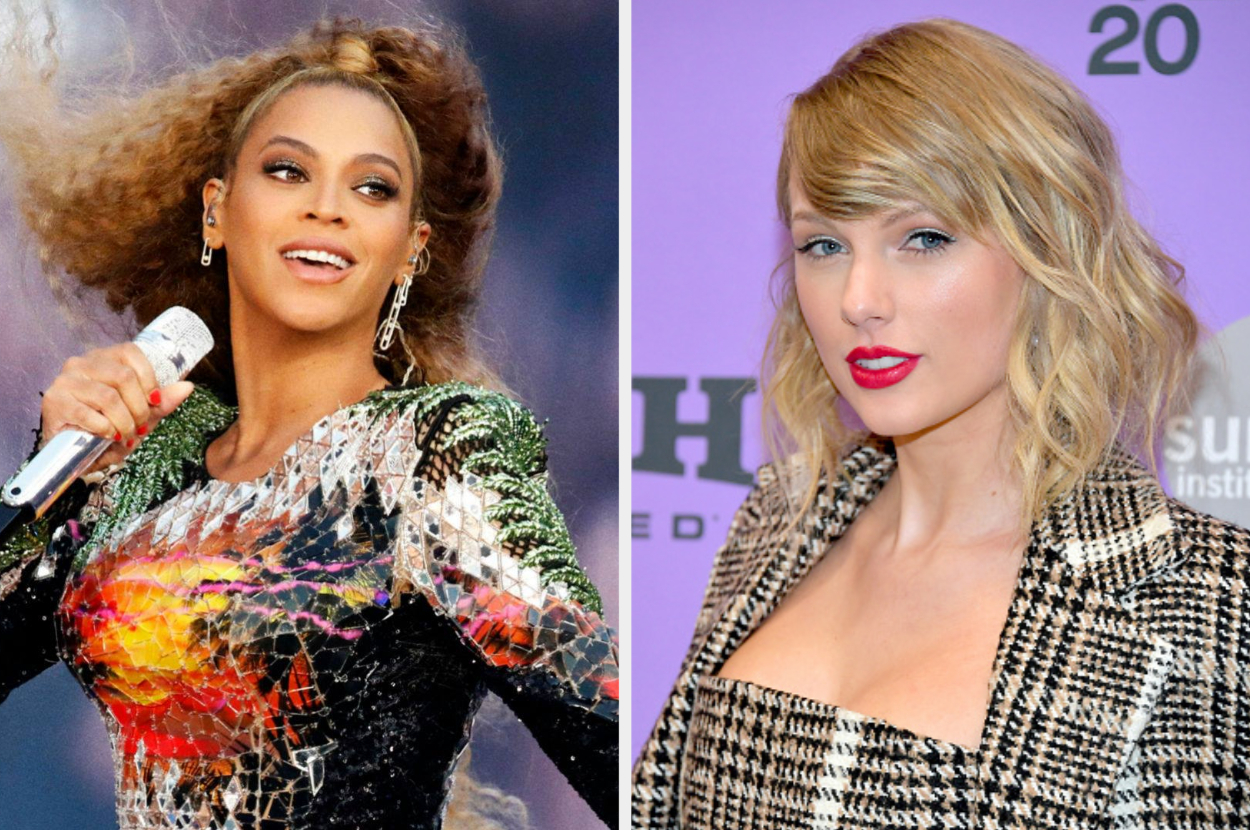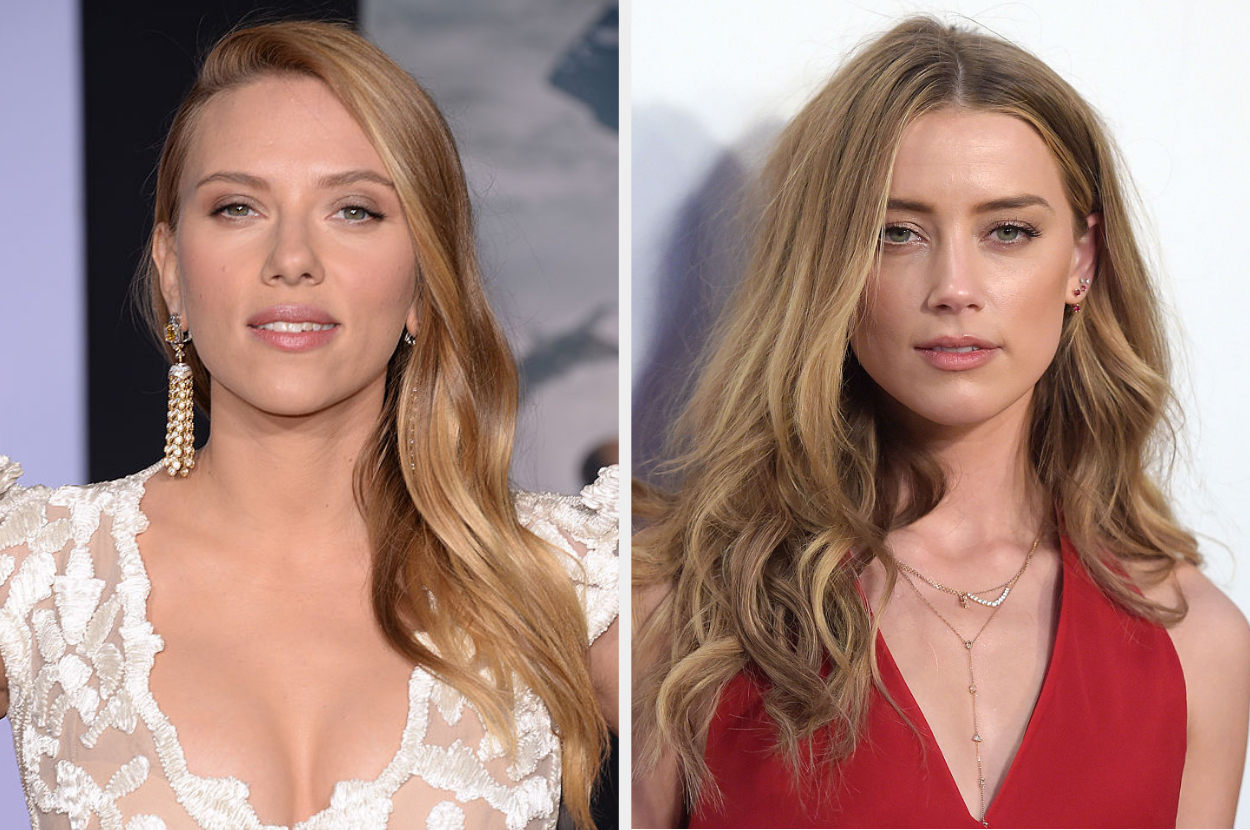
Look Like Your Favorite Celebrity: Is It Worth It?
Look like your favorite celebrity – a desire that has fueled countless magazine covers, reality TV shows, and social media trends. We’re constantly bombarded with images of seemingly flawless beauty, making it easy to get caught up in the quest for perfection.
But what are the real motivations behind this obsession? Is it simply a harmless fascination with a celebrity’s style, or is there something deeper at play?
This desire is rooted in a complex interplay of psychological factors, cultural influences, and the ever-evolving landscape of media and social media. We’ll explore the allure of celebrity resemblance, examining the techniques used to achieve a celebrity look, and ultimately, delving into the impact it has on our self-perception and body image.
The Allure of Celebrity Resemblance

The desire to resemble a favorite celebrity is a phenomenon that transcends age, gender, and cultural boundaries. It’s a complex interplay of psychological factors, cultural influences, and the pervasive power of media. This fascination with celebrity appearances raises questions about our perception of beauty, the role of media in shaping these perceptions, and the potential consequences of chasing unattainable ideals.
Psychological Factors Contributing to the Desire for Celebrity Resemblance
The desire to look like a celebrity often stems from deeper psychological needs and motivations. Several psychological factors contribute to this yearning:
- Identity and Self-Esteem:Identifying with a beloved celebrity can boost self-esteem and provide a sense of belonging. By emulating their appearance, individuals may feel a sense of connection to their idol’s success, charisma, or perceived attractiveness.
- Social Validation:In a society that often equates beauty with success, conforming to prevailing beauty standards can lead to social validation and acceptance. Celebrities, often seen as embodiments of these standards, become role models for achieving this validation.
- Escape from Reality:The pursuit of celebrity resemblance can be an escape from the mundane realities of everyday life. By transforming oneself into a version of a celebrity, individuals may seek a temporary reprieve from their own perceived flaws or insecurities.
- Admiration and Aspiration:Celebrities often represent idealized versions of ourselves. Their success, glamour, and perceived happiness inspire admiration and a desire to emulate their attributes, including their appearance.
Cultural Impact of Celebrity Culture and Beauty Standards
Celebrity culture plays a significant role in shaping our perceptions of beauty and influencing societal beauty standards.
- Influence on Beauty Norms:Celebrities, through their widespread media presence, often set the trends for what is considered attractive. Their hairstyles, makeup, and body types become aspirational ideals, influencing the beauty standards of a wider audience.
- Commodification of Beauty:Celebrity appearances are often commodified and marketed to the public through fashion, cosmetics, and beauty products. This creates a culture of consumerism where individuals feel pressured to conform to these standards and purchase products that promise to achieve a celebrity-like appearance.
- Unrealistic Expectations:The highly curated and often digitally altered images of celebrities present an unrealistic and unattainable standard of beauty. This can lead to feelings of inadequacy, self-consciousness, and a desire to conform to these impossible ideals.
The Role of Media and Social Media in Shaping Perceptions of Beauty and Celebrity
Media and social media play a crucial role in shaping perceptions of beauty and celebrity.
I’ve always loved trying to dress like my favorite celebrity, but this year I’m adding a whole new level of festive magic to my holiday routine. I’m going to try out this awesome new tradition of getting personalized texts from Santa, how to make christmas even more magical with a new tradition get texts from santa , and I think it’s going to make my Christmas even more magical! Who knows, maybe Santa will even give me some fashion tips on how to channel my inner celebrity style!
- Amplification of Celebrity Influence:Media platforms, particularly social media, amplify the reach and influence of celebrities. They provide constant exposure to celebrity appearances, further solidifying their status as beauty icons and role models.
- Digital Alteration and Idealization:The use of filters, photo editing software, and other digital tools in media and social media can create a distorted and unrealistic image of celebrities, perpetuating the myth of flawless beauty.
- Comparison and Competition:Social media platforms often foster a culture of comparison and competition, where individuals constantly compare themselves to the seemingly perfect lives and appearances of celebrities. This can lead to feelings of inadequacy and a relentless pursuit of unattainable ideals.
Achieving a Celebrity Look: Look Like Your Favorite Celebrity
The pursuit of a celebrity look has become a pervasive phenomenon in modern society. Driven by the allure of fame and the desire to emulate the beauty standards set by celebrities, individuals are increasingly seeking out cosmetic procedures and techniques to transform their appearance.
This quest for resemblance often involves a complex interplay of factors, including personal aspirations, societal pressures, and the influence of media and pop culture.
Cosmetic Procedures and Techniques
Cosmetic procedures and techniques play a significant role in achieving a celebrity look. These methods range from minimally invasive treatments to more extensive surgical interventions, each offering a unique set of benefits and risks.
- Non-Surgical Procedures: These procedures are less invasive and typically involve minimal downtime. Popular options include:
- Botox Injections: Botox is a neurotoxin that temporarily paralyzes muscles, reducing wrinkles and fine lines. It is commonly used to smooth forehead lines, crow’s feet, and frown lines.
- Dermal Fillers: Fillers are injected substances that add volume to the face, enhancing lips, cheeks, and other areas. They can also be used to correct wrinkles and improve skin texture.
- Chemical Peels: Chemical peels use acids to remove the outer layer of skin, revealing smoother, brighter skin. They can treat acne scars, sun damage, and wrinkles.
- Laser Treatments: Laser treatments can target various skin concerns, including wrinkles, pigmentation, and acne scars. They stimulate collagen production and improve skin tone.
- Surgical Procedures: Surgical procedures involve more invasive techniques and require a longer recovery period. Common options include:
- Rhinoplasty (Nose Job): Rhinoplasty reshapes the nose to improve its appearance or correct breathing problems. Celebrities often undergo this procedure to enhance their facial features.
- Blepharoplasty (Eyelid Surgery): Blepharoplasty removes excess skin and fat from the eyelids, making the eyes appear more youthful and alert. It is a popular procedure among celebrities who want to reduce signs of aging.
- Liposuction: Liposuction removes excess fat from specific areas of the body, sculpting the figure. Celebrities often undergo liposuction to achieve a slimmer and more defined physique.
- Breast Augmentation: Breast augmentation involves inserting implants or fat grafting to increase breast size. Celebrities often undergo this procedure to enhance their physical appearance.
Ethical Considerations and Potential Risks
While cosmetic procedures can enhance appearance and boost confidence, it is essential to consider the ethical implications and potential risks associated with them.
- Body Image and Self-Esteem: The pursuit of a celebrity look can contribute to unrealistic beauty standards and negatively impact self-esteem. It is crucial to remember that true beauty lies in individuality and self-acceptance.
- Surgical Risks: All surgical procedures carry inherent risks, including infection, bleeding, and complications. It is essential to choose qualified and experienced surgeons and understand the potential risks before undergoing any procedure.
- Over-reliance on Cosmetic Procedures: Over-reliance on cosmetic procedures can lead to an unhealthy obsession with appearance and a distorted perception of beauty. It is important to maintain a healthy balance and focus on inner beauty and well-being.
- Pressure to Conform: The pressure to conform to celebrity beauty standards can be intense, particularly for young people. It is important to encourage individuality and self-acceptance rather than striving for unattainable ideals.
Examples of Celebrity Transformations
Numerous celebrities have undergone significant transformations throughout their careers, often using cosmetic procedures to enhance their appearance.
- Kylie Jenner: Kylie Jenner’s transformation has been widely documented, with her lips becoming a signature feature. She has admitted to using fillers to enhance her lips, sparking discussions about the impact of social media and the pressure to achieve a certain look.
Ever dreamed of looking like your favorite celebrity? While achieving that exact look might be tricky, you can always give a special someone a gift that helps them feel like a star! Check out 14 gift ideas for everyone on your list for some inspiration, from luxurious skincare to personalized accessories, and maybe even find something to treat yourself with too! After all, everyone deserves to feel a little bit like a celebrity, right?
- Megan Fox: Megan Fox has been open about her experiences with cosmetic procedures, including rhinoplasty and breast augmentation. Her transformation has been a subject of much debate, with some praising her enhanced appearance and others criticizing her for succumbing to societal pressures.
- Caitlyn Jenner: Caitlyn Jenner’s transition is a powerful example of the transformative power of cosmetic procedures. Her journey has challenged societal norms and sparked conversations about gender identity and self-expression.
The Impact of Celebrity Resemblance

The pursuit of resembling a favorite celebrity, while seemingly harmless, can have profound social and psychological effects on individuals. This phenomenon, often driven by societal pressures and media influence, can lead to a complex interplay of emotions, behaviors, and self-perception.
The Influence of Unrealistic Beauty Standards
The relentless portrayal of idealized beauty in media and entertainment often creates unrealistic expectations for individuals. Celebrities, often presented as the epitome of physical perfection, can unintentionally contribute to body image issues and self-esteem challenges. This constant exposure to unattainable standards can lead to:
- Body Dissatisfaction:Individuals may feel inadequate or dissatisfied with their own appearance when compared to the seemingly flawless features of celebrities. This can lead to feelings of insecurity and low self-esteem.
- Unrealistic Beauty Goals:The pursuit of a celebrity look can lead to unrealistic beauty goals, pushing individuals to engage in unhealthy practices like extreme dieting, excessive exercise, or cosmetic procedures.
- Social Comparison:Social media platforms amplify the comparison game, with individuals constantly bombarded with images of seemingly perfect celebrities and others who have achieved the desired look. This can fuel feelings of inadequacy and create a constant pressure to conform to unrealistic beauty standards.
Okay, so you want to look like your favorite celebrity? It’s all about the right lighting and angles, right? But what about those times when you’re on the go and need a quick, healthy meal? That’s where freeze-dried foods come in! They’re lightweight, long-lasting, and surprisingly delicious.
If you’re looking for tips on how to cook with them, check out five tips for cooking with freeze dried foods for some inspiration. Once you’ve mastered those, you’ll be ready to conquer the world – or at least the red carpet!
Beyond Physical Appearance
While a striking resemblance to a celebrity can certainly draw attention and open doors, it’s crucial to recognize that true influence extends far beyond physical attributes. The allure of celebrity often stems from a captivating combination of talent, personality, and a carefully cultivated personal brand.
The Power of Talent, Look like your favorite celebrity
Talent, in its various forms, plays a pivotal role in propelling individuals to celebrity status. Whether it’s exceptional musical ability, acting prowess, athletic prowess, or artistic brilliance, talent serves as the foundation upon which a celebrity’s career is built. The ability to captivate and inspire audiences through skill and artistry is a key driver of influence.
- Musical Talent:Musicians like Beyoncé and Taylor Swift have achieved global fame through their exceptional vocal abilities, songwriting skills, and captivating stage presence. Their talent has not only garnered critical acclaim but has also resonated with millions of fans worldwide.
- Acting Talent:Actors like Leonardo DiCaprio and Meryl Streep are renowned for their ability to embody diverse characters with depth and authenticity. Their talent for storytelling and emotional connection has earned them numerous awards and solidified their positions as Hollywood icons.
- Athletic Talent:Athletes like Michael Jordan and Serena Williams have captivated audiences with their extraordinary athleticism and achievements. Their talent has inspired generations and cemented their legacies as sports legends.
The Impact of Personality
Beyond talent, personality plays a significant role in shaping a celebrity’s appeal. A charismatic and relatable personality can draw fans in and foster a sense of connection. Celebrities who are genuine, authentic, and engaging in their interactions with the public are more likely to build lasting relationships with their audiences.
- Humility and Authenticity:Celebrities like Tom Hanks and Jennifer Aniston are known for their down-to-earth personalities and genuine demeanor. Their humility and authenticity have endeared them to fans and contributed to their enduring popularity.
- Wit and Charisma:Celebrities like Ellen DeGeneres and Ryan Reynolds are celebrated for their quick wit, humor, and ability to connect with audiences on a personal level. Their charisma and ability to make people laugh have solidified their status as entertainment icons.
- Empathy and Social Consciousness:Celebrities like Oprah Winfrey and George Clooney are known for their commitment to social causes and their willingness to use their platform to advocate for positive change. Their empathy and social consciousness have inspired millions and earned them widespread respect.
The Importance of Personal Brand
In today’s media-saturated landscape, a carefully crafted personal brand is essential for achieving and maintaining celebrity status. This involves strategically managing one’s image, values, and messaging across various platforms. A strong personal brand can enhance a celebrity’s visibility, influence, and marketability.
- Image Management:Celebrities like Kim Kardashian and Rihanna are known for their meticulously curated public personas. They have successfully leveraged their image to build successful business ventures and maintain a constant presence in the public eye.
- Value Alignment:Celebrities like Emma Watson and Leonardo DiCaprio have used their platforms to advocate for causes they believe in, aligning their personal brand with their values. This approach has earned them respect and admiration from fans who share their beliefs.
- Strategic Communication:Celebrities like Dwayne Johnson and Oprah Winfrey are adept at communicating with their audiences through various channels, from social media to traditional media. Their strategic communication efforts help them maintain a strong connection with their fans and build a loyal following.
Celebrity Resemblance in the Digital Age
The rise of social media and photo editing apps has fundamentally altered the way we perceive celebrities and ourselves. These tools, while offering creative possibilities, also raise concerns about the impact they have on our self-image and the unrealistic expectations they foster.
The Influence of Filters and Editing Apps
The widespread use of filters and editing apps has created a distorted reality where celebrities appear flawless and unattainable. These tools allow for the manipulation of images to enhance features, slim down figures, and erase imperfections, creating a facade of perfection that is often far removed from reality.
- Filters and Editing Apps:These tools offer a range of options for altering images, from basic adjustments like brightness and contrast to more advanced features like skin smoothing, blemish removal, and body reshaping. Popular apps like Instagram, Snapchat, and Facetune provide a wide array of filters and editing tools that allow users to transform their appearance with a few taps.
- Idealized Images:The use of these tools by celebrities and influencers creates a constant stream of idealized images that are shared across social media platforms. These images present a narrow and unrealistic standard of beauty, leading viewers to believe that achieving such perfection is possible and desirable.
The Impact on Self-Perception and Body Image
The constant exposure to heavily edited images of celebrities can have a detrimental impact on self-perception and body image, particularly among young people.
- Unrealistic Expectations:The idealized images created by filters and editing apps can lead to unrealistic expectations about one’s own appearance. Individuals may begin to compare themselves to these digitally enhanced versions of celebrities, leading to feelings of inadequacy and dissatisfaction with their own bodies.
- Body Dysmorphia:The constant exposure to unrealistic beauty standards can contribute to the development of body dysmorphia, a mental health condition characterized by an obsessive focus on perceived flaws in one’s appearance. Individuals with body dysmorphia may engage in excessive grooming, dieting, or cosmetic procedures in an attempt to achieve the perceived ideal.
- Social Comparison:Social media platforms provide a constant stream of images that encourage social comparison. Users may compare their own appearance to that of others, leading to feelings of envy, insecurity, and low self-esteem. This can be particularly damaging for young people who are still developing their sense of self and identity.
Ethical Considerations
The use of filters and editing apps raises ethical concerns about the creation of unrealistic expectations and the potential for deception.
- Transparency and Authenticity:There is a growing concern about the lack of transparency regarding the use of filters and editing apps. Celebrities and influencers often fail to disclose when they have edited their images, leading to a sense of deception and contributing to unrealistic beauty standards.
- Impact on Mental Health:The proliferation of edited images can have a negative impact on mental health, particularly among young people. The constant exposure to unrealistic beauty standards can lead to feelings of inadequacy, low self-esteem, and body dissatisfaction.
- The Role of Social Media Platforms:Social media platforms have a responsibility to address the ethical concerns surrounding the use of filters and editing apps. This could include promoting transparency, providing users with tools to identify edited images, and educating users about the potential impact of these tools on self-perception and body image.

